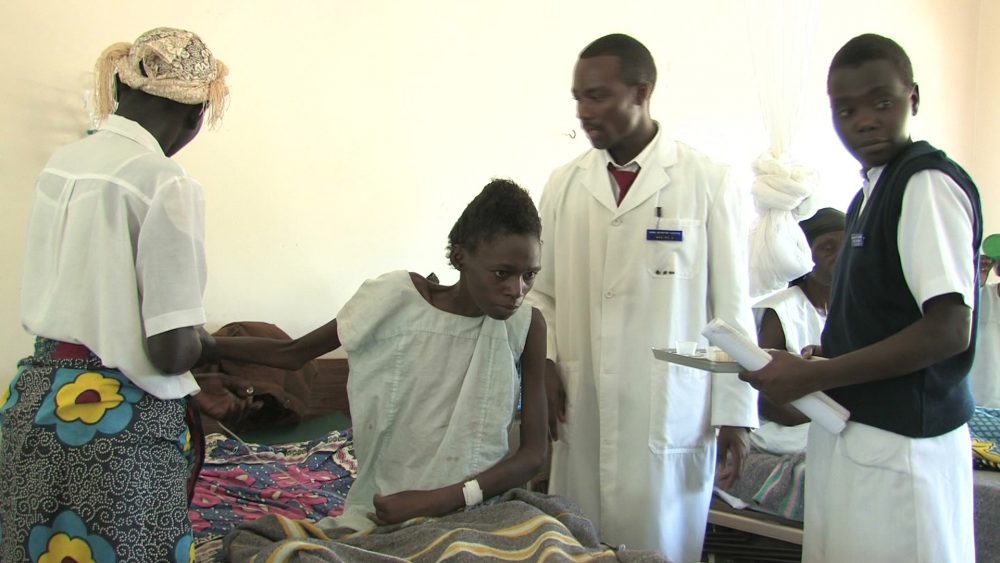Hepatitis
Hepatitis is the term used to describe inflammation of the liver. It's usually the result of a viral infection or liver damage caused by drinking alcohol.
The global burden of disease and mortality from viral hepatitis is high. An estimated 57% of liver cirrhosis cases and 78% of primary liver cancer cases result from hepatitis B or C viruses’ infections. In recognition of the importance of the public health problem posed by hepatitis, in 2010, the 63rd World Health Assembly designated July 28th as World Hepatitis Day and requested an integrated response in the fight against hepatitis.
Estimated 325 million people were living with chronic hepatitis infections (HBV or HCV) worldwide in 2015.
1.34 million Globally, 1.34 million people died of viral in 2015.
60 million people
Hepatitis B affects an estimated 100 million people in Africa (mainly in West and Central Africa)
19 million adults
An estimated 19 million adults in Africa are chronically infected with hepatitis C.
90 %
Over 90% of people with hepatitis C can be completely cured within 3–6 months.
Symptoms of hepatitis
Short-term (acute) hepatitis often has no noticeable symptoms, so you may not realise you have it.
If symptoms do develop, they can include:
- muscle and joint pain
- a high temperature
- feeling and being sick
- feeling unusually tired all the time
- a general sense of feeling unwell
- loss of appetite
- tummy pain
- dark urine
- pale, grey-coloured poo
- itchy skin
- yellowing of the eyes and skin (jaundice)
See your GP if you have any persistent or troublesome symptoms that you think could be caused by hepatitis.
Long-term (chronic) hepatitis also may not have any obvious symptoms until the liver stops working properly (liver failure) and may only be picked up during blood tests.
In the later stages it can cause jaundice, swelling in the legs, ankles and feet, confusion, and blood in your stools or vomit
There are several different types of hepatitis, most of which are outlined below.
Hepatitis A
Hepatitis A is caused by the hepatitis A virus. It’s usually caught by consuming food and drink contaminated with the poo of an infected person, and is most common in countries where sanitation is poor.
Hepatitis A usually passes within a few months, although it can occasionally be severe and even life threatening.
There’s no specific treatment for it, other than to relieve symptoms like pain, nausea and itching.
Vaccination against hepatitis A is recommended if:
- you’re at high risk of infection or severe consequences of infectiion you’re travelling to an area where the virus is common
Hepatitis B
Hepatitis B is caused by the hepatitis B virus, which is spread in the blood of an infected person.
It’s a common infection worldwide and is usually spread from infected pregnant women to their babies, or from child-to-child contact.
In rare cases, it can be spread through unprotected sex and injecting drugs.
Hepatitis B is ommon in Africa.
Most adults infected with hepatitis B are able to fight off the virus and fully recover from the infection within a couple of months.
But most people infected as children develop a long-term infection. This is known as chronic hepatitis B, and can lead to cirrhosis and liver cancer. Antiviral medication can be used to treat it.
Vaccination against hepatitis B is recommended for people in high-risk groups, such as:
- healthcare workers
- people who inject drugs
- men who have sex with men
- children born to mothers with hepatitis B
- people travelling to parts of the world where the infection is more common
Hepatitis B vaccine should be added to the routine immunisation programme so all children can benefit from protection from this virus.
Hepatitis C
Hepatitis C is caused by the hepatitis C virus and is the most common type of viral hepatitis in Africa.
It’s usually spread through blood-to-blood contact with an infected person.
It’s most commonly spread through sharing needles used to inject drugs.
Poor healthcare practices and unsafe medical injections are the main way it’s spread outside.
Hepatitis C often causes no noticeable symptoms, or only flu-like symptoms, so many people are unaware they’re infected.
Around 1 in 4 people will fight off the infection and be free of the virus. In the remaining cases, it’ll stay in the body for many years.
This is known as chronic hepatitis C and can cause cirrhosis and liver failure.
Chronic hepatitis C can be treated with very effective antiviral medications, but there’s currently no vaccine available.
Hepatitis D
Hepatitis D is caused by the hepatitis D virus. It only affects people who are already infected with hepatitis B, as it needs the hepatitis B virus to be able to survive in the body.
Hepatitis D is usually spread through blood-to-blood contact or sexual contact. It’s common in and widespread in Africa.
Long-term infection with hepatitis D and hepatitis B can increase your risk of developing serious problems, such as cirrhosis and liver cancer.
There’s no vaccine specifically for hepatitis D, but the hepatitis B vaccine can help protect you from it.
Alcoholic hepatitis
Alcoholic hepatitis is a type of hepatitis caused by drinking excessive amounts of alcohol over many years.
The condition is common and many people do not realise they have it.
This is because it does not usually cause any symptoms, although it can cause sudden jaundice and liver failure in some people.
Stopping drinking will usually allow your liver to recover, but there’s a risk you could eventually develop cirrhosis, liver failure or liver cancer if you continue to drink alcohol excessively.
You can reduce your risk of developing alcoholic hepatitis by controlling how much you drink.


